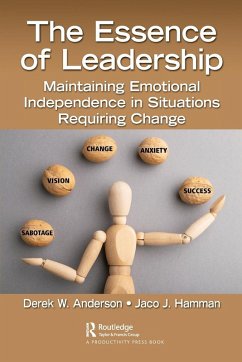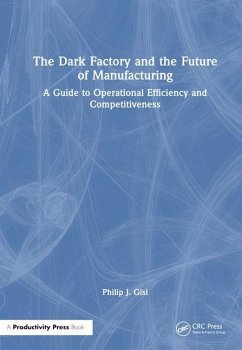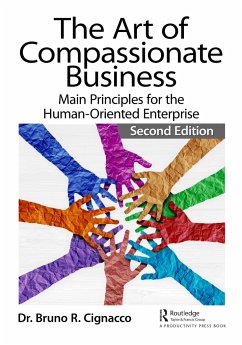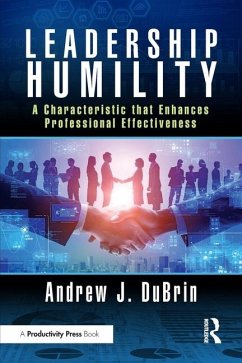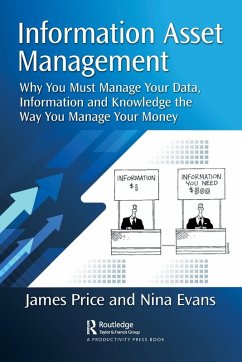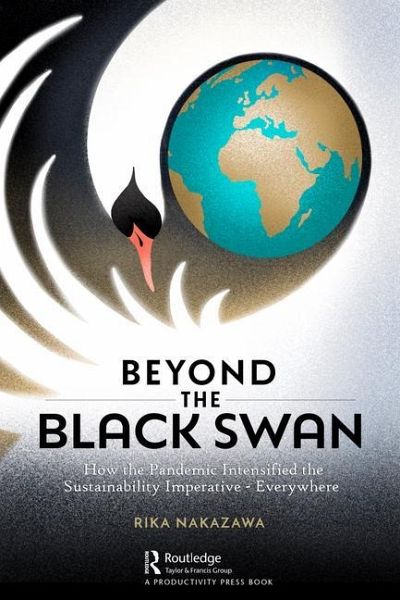
Beyond the Black Swan
How the Pandemic and Digital Innovations Intensified the Sustainability Imperative - Everywhere
Versandkostenfrei!
Versandfertig in 6-10 Tagen
40,99 €
inkl. MwSt.
Weitere Ausgaben:

PAYBACK Punkte
20 °P sammeln!
Of course, anyone would want to wake up from a really bad dream - especially one that seemed like it may never end, while successively stripping away joys and conveniences of our modern living.The COVID-19 pandemic bestowed on us a collective nightmare experience of varying intensity, akin to a "Black Swan" event, as author and mathematical philosopher Nassim Taleb might describe-given its universal rarity and devastating effects and seeming predictability in hindsight. However, we may remember this remarkable time in our history rather as a "White Swan" event-one that catalyzed a more common ...
Of course, anyone would want to wake up from a really bad dream - especially one that seemed like it may never end, while successively stripping away joys and conveniences of our modern living.
The COVID-19 pandemic bestowed on us a collective nightmare experience of varying intensity, akin to a "Black Swan" event, as author and mathematical philosopher Nassim Taleb might describe-given its universal rarity and devastating effects and seeming predictability in hindsight. However, we may remember this remarkable time in our history rather as a "White Swan" event-one that catalyzed a more common occurrence of evolving Environmental, Social, and Governance (ESG) principles, a mainstreaming of sustainability-fueled by the digital innovations that designed ways to survive and thrive into a new, and more holistic, world order.
Now, as we emerge from the remnants of the pandemic's aftermath, we find ourselves at the late dawn of a new geologic epoch-the "Anthropocene"-where the impact of humans on the planet's geology and ecosystems looms so monumentally that the gravest threat to our existence stems from our own actions. Contained within these pages, you will discover insights from leaders across diverse domains-community, industry, public administration, and the investment community. Through their own experiences, we unfurl "White Swan sightings"- moments when sustainability flourished in response to reverberations of the COVID-19 virus.
More poignantly, the journey ahead carries us beyond the realm of the Black Swan, while the acceleration of digital innovations equips us to herald a new era out of the Anthropocene and into a new one, with sustainability innovations as a critical placemat. The humanistic seismic shifts caused by the Pandemic will generate a future of holistic interoperability between digital and organic matters. We are on the brink of designing unprecedented harmony with each other and equilibrium of regenerative growth with the world around us. The urgency has never been greater, nor the possibilities so profound.
The COVID-19 pandemic bestowed on us a collective nightmare experience of varying intensity, akin to a "Black Swan" event, as author and mathematical philosopher Nassim Taleb might describe-given its universal rarity and devastating effects and seeming predictability in hindsight. However, we may remember this remarkable time in our history rather as a "White Swan" event-one that catalyzed a more common occurrence of evolving Environmental, Social, and Governance (ESG) principles, a mainstreaming of sustainability-fueled by the digital innovations that designed ways to survive and thrive into a new, and more holistic, world order.
Now, as we emerge from the remnants of the pandemic's aftermath, we find ourselves at the late dawn of a new geologic epoch-the "Anthropocene"-where the impact of humans on the planet's geology and ecosystems looms so monumentally that the gravest threat to our existence stems from our own actions. Contained within these pages, you will discover insights from leaders across diverse domains-community, industry, public administration, and the investment community. Through their own experiences, we unfurl "White Swan sightings"- moments when sustainability flourished in response to reverberations of the COVID-19 virus.
More poignantly, the journey ahead carries us beyond the realm of the Black Swan, while the acceleration of digital innovations equips us to herald a new era out of the Anthropocene and into a new one, with sustainability innovations as a critical placemat. The humanistic seismic shifts caused by the Pandemic will generate a future of holistic interoperability between digital and organic matters. We are on the brink of designing unprecedented harmony with each other and equilibrium of regenerative growth with the world around us. The urgency has never been greater, nor the possibilities so profound.







